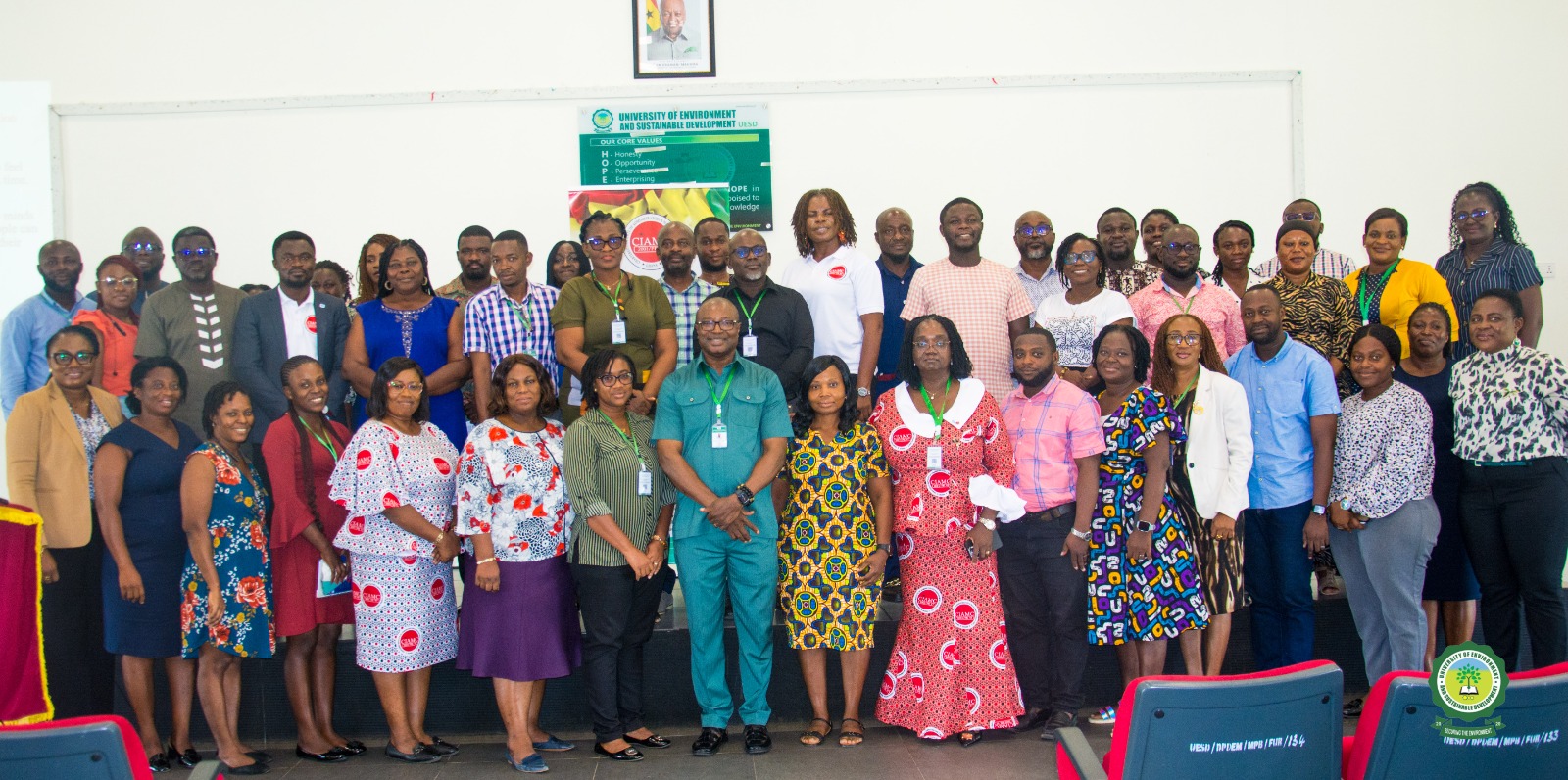The University of Environment and Sustainable Development (UESD), Somanaya, Eastern Region has hosted a Mandatory Continuing Professional Education Programme (MCEP) by the Chartered Institute of Administrators and Management Consultants (CIAMC), held at the, Auditorium, Multipurpose Building.
Anchored on the theme “Transition Management in Political and Corporate Environments in Ghana: History, Challenges, and Future Prospects,” the programme brought together professionals, academics, and staff members of the University to explore the complexities and opportunities of managing transitions in both political and corporate settings.
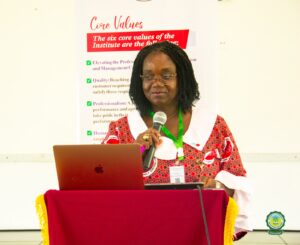
The programme was chaired by the Registrar of the University, Mrs. Mary Abena Agyepong, with the Vice-Chancellor, Prof. Eric Nyarko-Sampson, serving as the resource person and coordinated by the Deputy Chief Executive Officer of CIAMC, Ghana, Mrs. Hannah Ampomea Coffie.
In her opening remarks, Mrs. Agyepong welcomed the participants and underscored the significance of the topic. She noted that transitions are a constant and necessary aspect of organisational life, and mastering them is vital to strengthening governance, enhancing corporate efficiency, and shaping a resilient society. She commended the participants for their audience and challenged them to make use of the knowledge acquired in their respective offices
Prof. Nyarko-Sampson’s presentation emphasised the importance of effective transition management in ensuring a smooth shift from one operational state of an organization to another. He highlighted how minimising disruptions and maintaining or improving performance was essential across both political and corporate sectors.
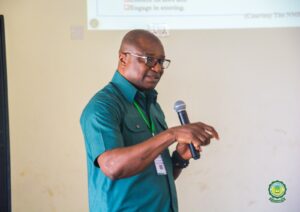
He stated that transitions act as dynamic interludes between phases in an organisation’s lifecycle and are crucial for navigating change; and their function is to close out one phase which is the ending phase, reorient and renew people in the neutral phase and then carry them into the new way of doing and being and that is the beginning of the next stage.
The Vice-Chancellor also emphasised that a single transition may not be enough to bring about the complete transformation and the reorientation of its people and that there may instead be a string of transitions each of which carries the organization a step further along the path of its development.
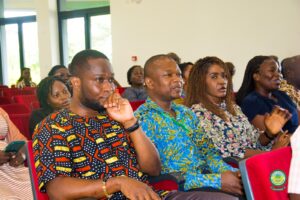
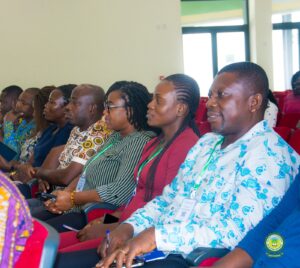
He indicated that “transition starts with an ending and ends with a beginning”; a statement he deemed paradoxical but true. He demonstrated these by challenging participants to imagine a big change in their lives: getting promoted into management, moving into their first house, coming home from the hospital with their first child all of which are good changes but as transitions, each of them started with an ending and a letting go. He added that in the case of the job promotion, one may have had to let go of old peers because he or she may not be peers to them anymore and the kind of work he or she really liked may have come to an end when he or she shifted to managing his or her old peers who still did that kind of work.
By. Eric Smart Anumah

